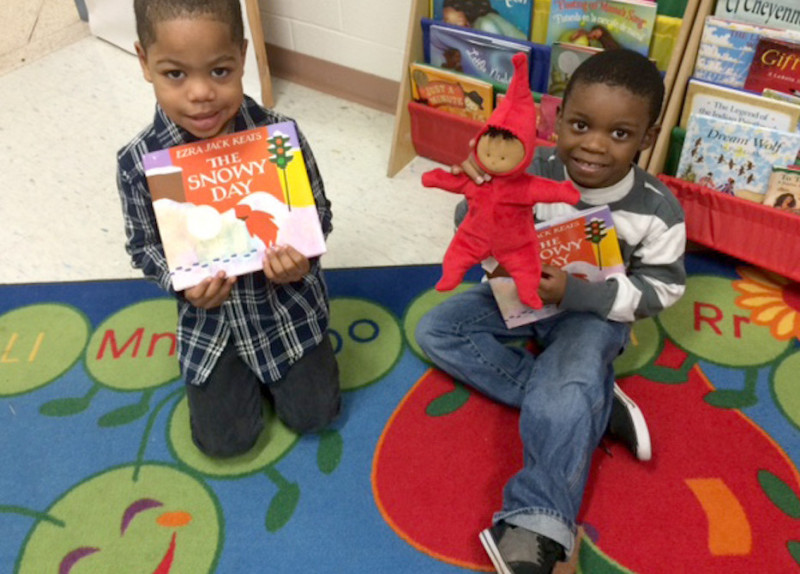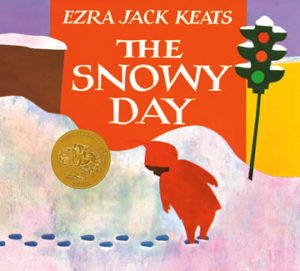 Jennifer Hunter's Kindergarten reading class, East Coventry Elementary School, Pottstown, Penn.
Jennifer Hunter's Kindergarten reading class, East Coventry Elementary School, Pottstown, Penn.
In 1963, at the height of the Civil Rights era, a children’s story broke the color barrier when A Snowy Day by Ezra Jack Keats, whose 100th birthday is this month, was awarded the Caldecott Medal. It was the first time a book featuring an African American as the central character had won the prestigious children’s literature award since the American Library Association began the program in 1938.
“Ezra Jack Keats knew #weneeddiversebooks long before the movement started and he was doing just that with Peter,” says Craig Seasholes, the teacher-librarian at Sanislo Elementary School in Seattle, Washington. “A little boy dragging a stick down a sidewalk on a snowy day -- the real snowy day that so many kids see, the urban one, with a broken fence and bits of graffiti -- showed kids their world in a way that honors their resilience as well as their diversity.”
Many people don’t realize that Keats wasn’t African American. The son of Polish immigrants who grew up in a poor neighborhood of Brooklyn’s Jewish quarter, he knew poverty and discrimination firsthand. According to Deborah Pope, Executive Director of the Ezra Jack Keats Foundation, he identified with people of different races and ethnicities who suffered similar hardships. He wanted no child to feel like an outsider.
“Ezra wanted all children to be able to see themselves in picture books,” says Pope. “With The Snowy Day and the nearly 30 picture books he went on to write and illustrate, he transformed the landscape of children’s literature.”
 Courtesy of the Ezra Jack Keats Foundation
Courtesy of the Ezra Jack Keats Foundation
Leslie Preddy, president of the American Association of School Librarians, says you’d be hard pressed to find a school or public library that doesn’t have at least one copy of The Snowy Day, not only because it’s about an African American boy who doesn’t fade into the background, but because it could be any boy in that iconic red snowsuit who takes us on his adventure. It’s universal and timeless, and it resonates as much today as it did fifty years ago.
With colorful collage illustrations and a quiet, thoughtful hero who experiences the joy and wonder of a fresh snowfall, The Snowy Day makes a statement about race by not saying anything at all. The fact that Peter is African American is immaterial – it’s a story about a child finding magic and adventure in nature, something every human being can relate to, no matter their race.
“In 1963 it was considered a very brave move by librarians to award this to Keats, but libraries and librarians have always been known for our inclusiveness – we are where kids go to find a safe place to think and play and learn,” Preddy says. “Diverse books like Keats’ are symbolic of libraries and how all are welcome and everyone can find themselves in our books.”
The Ezra Jack Keats (EJK) Foundation is devoted to bringing the multicultural, creative spirit of Keats to children’s lives and literature and to promoting public education through grants and lesson plans. For Keats, it was at public school that he received his greatest encouragement to pursue his vocation as an artist, and the foundation awards mini-grants of up to $500 to public schools and public libraries for projects that foster creative expression, working together and interaction with a diverse community.
This year the EJK foundation is making the author-illustrator’s centenary a year-long celebration with events planned across the country, and is awarding its $500 mini-grants for projects with a Keats theme.
Find out more about the mini-grants or resources for educators at ezra-jack-keats.org.








